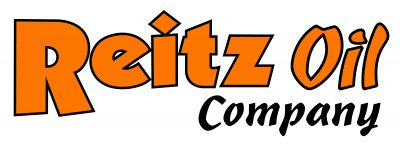10 Tips for Smart Home Heating this Fall & Winter
Whether you’re budgeting to save for a tropical getaway or just to afford those never-ending bills, fall and winter home heating is something it pays to get smart about. Heating your home or apartment during the chilly months can quickly become your most expensive utility. At Reitz Oil, we know that using a few preventative and effective home heating techniques can help you get the most out of your oil heat, and can leave you feeling both smart and warm through the fall and winter seasons. Take some time to employ these tactics each year as the cool fall air hits, and reap the benefits time after time.
1. Clear the clogs
Take the time to regularly check both your heating system’s fill pipe and vents outside to ensure that they are clear of debris and that no trees or bushes have grown to block them. Clogs in these areas can prevent oil from getting to your furnace, possibly resulting in a cold home and an emergency oil service bill.
2. Get the glass
Remove screens from storm doors and install glass inserts. This provides your home with better insulation, ensuring that your heat can go further and last longer, helping to save you money each month.
3. Run a perimeter check
At the end of each season, take a quick perimeter check of your home to look for cracks or holes that may need sealing. By finding and sealing these areas quickly, you will save money on your heating bill, and potentially save significant damage to your home.
4. Battery Basics
When did you last check your thermostat’s batteries? Low batteries on a thermostat can interfere with properly heating your home. By checking and replacing your thermostat’s batteries on a regular basis, you can keep things running accurately and smoothly.
5. Keep Bare Baseboards
Regularly check to make sure that all baseboards and radiators in your home or apartment are both clean and clear. This will ensure that your heating system can provide maximum airflow and even heat disbursement.
6. Clean the Chimney
Keep a clean chimney year-round to get the most from your home heating system. If you frequently use your chimney during the cooler months, a cleaning may be necessary to ensure that it is clear. Chimney inspections can help you save on your heating bills.
7. Turn off the Water
During cooler months, it helps to shut off and drain all outside faucets at your home. You do this by turning the water off at the shut-off valve, and then turning on the faucet to drain and excess water that may remain inside. After you return to the inside shut-off valve, you can also remove the bleeder cap in order to drain all remaining water out of the pipe.
8. Clockwise Ceiling Fans
Change the direction of the ceiling fans in your home during the summer and winter by turning them off, and then finding the direction switch. Fans were made to go in multiple directions for several practical reasons, including energy efficiency. During cooler months, fans should rotate clockwise, while in summer, they should spin counter-clockwise. Turning the fan clockwise in the winter at a low speed will gently draw warm, heated air up toward the ceiling and disperse it outward, helping you to avoid the wind chill effect that fans sometimes give while spinning in the other direction, and helping you to more evenly heat your home.
9. Stock-up on Shovels
As winter approaches, having things like shovels and ice-melt on hand can be very helpful. After a significant snowfall or ice storm, it is important to keep heating vents and pipes clear to ensure that they continue to work properly and give you the most heat possible when it is most needed.
10. Regularly schedule tune-ups and inspections
Staying on top of the overall health of your heating unit has tremendous benefits. Have a knowledgeable technician conduct regular inspections to check that your heating system is running as efficiently as possible. Yearly tune-ups help to save oil and money, so schedule annual tank and heating unit exams. This will help ensure that your tank is not only ready for winter oil deliveries, but that your system is operating at its peak.
